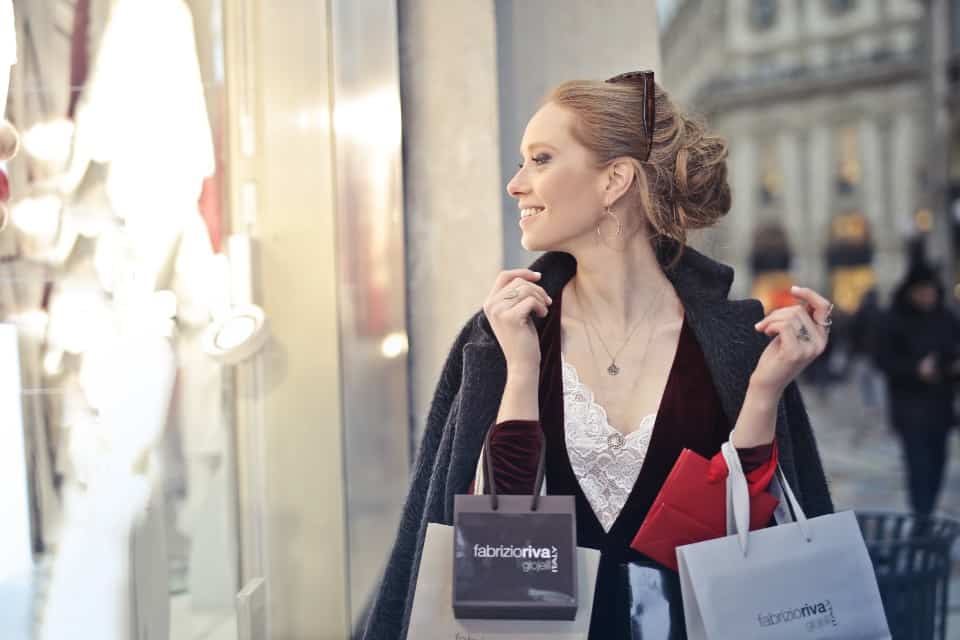
In recent years, we have started buying things differently. Online stores have become a habitual place, where you can buy your favorite branded pants or a bag in a couple of clicks, and augmented reality apps help you make your choice by offering virtual fittings. Special services can analyze our lifestyle and recommend clothes, so you don’t even have to search for them on the websites. The pace of life is accelerating, and with it the shopping process: it may seem that the faster we purchase goods — the better because time is a valuable resource.
2020 has also made some adjustments to our shopping experience. With no access to real stores, people were forced to focus on online shopping. If you check out the latest weekly ads on www.rabato.com/us/, it will provide even more opportunities to save on your daily shopping. However, most of us already experience a lack of presence and conscious shopping after direct contact with things. The concept of such interaction has been given the informal name — slow shopping. Today, we want to tell you about this phenomenon, why it is essential for metropolis residents who want to save their money, and why it becomes especially valuable in a new reality.
The Concept of Slow Shopping
The slow shopping movement began in the late 1980s as a reaction to the growing popularity of fast food in Rome. The main idea of it is to abandon the fuss in favor of awareness, thinking about your actions, and enjoying them. Nowadays, this phenomenon is spreading to various spheres of life, from gardening to education.
The term “slow fashion” was established in 2007 by journalist and author of books on sustainable development in fashion Kate Fletcher. The main thesis of slow fashion is that quality is more important than quantity, and from it follows a slowdown in the consumption of goods and the choice of durable things. This is slow shopping.
How Slow Shopping Helps the Sustainable Development and Your Budget
Fletcher contrasted slow with fast shopping, where fast fashion, which can be considered a synonym for the mass market — cheap low-quality goods that change almost every week, the production volumes of which are huge. More than 150 billion garments and accessories are produced annually, which are bought in a hurry. As a result, a tremendous part of them is thrown away. In this regard, the idea of slow shopping becomes one of the ways to minimize damage to the environment.
Try to memorize some of the questions that come to your mind before buying some goods:
- How to make a look using my old clothes and these new shoes?
- Are they comfortable to wear all day long?
- Are they made of sufficient quality to be worn more than one season?
Refusing to follow fast trends and spending a little more time choosing new clothes, shoes and accessories will help avoid impulsive purchases, after which things are likely to end up in the far corner of the wardrobe or be thrown away. Finally, such mindfulness will help you to save on regular shopping while visiting popular stores in Florida.
Why Slow Shopping Is a Psychologically Important Experience
Accelerating the pace of life has side effects known to everyone: this is one of the main sources of stress — more than 80% of city residents suffer from it and related health problems. The shopping process itself also begins to cause stress: it seems that we are spending extra time on shopping, during which we could manage to do millions of essential things.
However, clothes, shoes, household items — all these things stay with us for a long time. They have long lost their practical function: they are all part of our personality and communication with the world. Therefore, their thoughtful purchase becomes also a tool for establishing contact with our own emotions and, as a result, reducing the level of daily stress.
The experience of slow shopping comes from our psychological comfort. Therefore, the request of a city resident becomes complex. In addition to the necessary goods in one place, we want to get other components of a pleasant and relaxing pastime: tasty and healthy food, the opportunity to take a break in silence and do not worry about the child.
Therefore, many world brands combine their brand stores with cafés and galleries, and even libraries, provide educational programs and additional services that are designed to make life easier for customers. For example, Gucci opened the Gucci Garden space in Florence, Prada in Milan, Ralph Lauren in New York, and Burberry in London.
In Conclusion
The slowdown in which the entire world has become involved in recent months has shown the importance of balancing speeds to look around and understand what is happening. The accelerated pace of urban life, although associated with stress, also provides opportunities for self-realization. A recent study by scientists from California State University showed that a fast pace of life is correlated with a high standard of living and overall satisfaction with it. And, paradoxically, you can sometimes get involved by slowing down. And slow shopping is a great opportunity for that, which also brings a significant profit to our budgets.